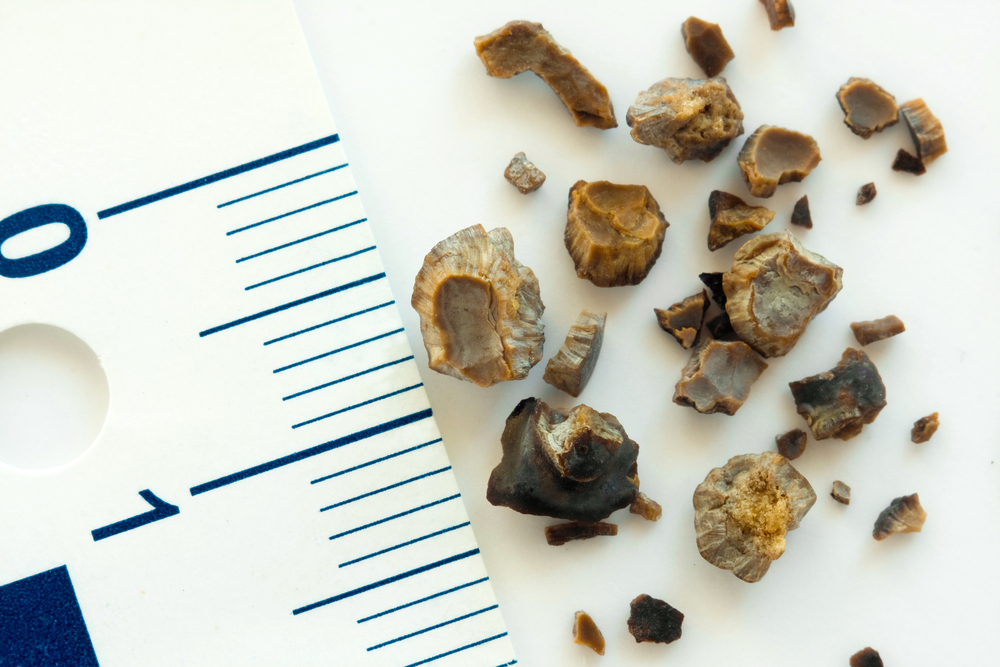MS Patients Face Higher Risk of Contracting Kidney, Bladder Stone Disease, Study Finds

People with multiple sclerosis (MS) are more likely to develop kidney or bladder stones than those without MS, a new study concludes.
The report, “Multiple sclerosis and nephrolithiasis: a matched-case comparative study,” appeared in the journal BJU International.
Stone disease is highly lethal in patients with spinal cord injury (SCI), a condition that, like MS, affects the nerves of the spinal cord. Previous studies have characterized stone formation in SCI patients, but not in MS patients, who also risk developing stone disease.
“The objective of this study was two-fold: (1) evaluate the stone composition as well as serum and urine biochemistries in patients with MS and (2) to examine whether mobility and bladder management strategies [required to control the bladder in patients with spinal cord damage] are risk factors in stone formation in patients with MS,” wrote the researchers, who are affiliated with the Cleveland Clinic and Ohio’s Case Western Reserve School of Medicine.
The team analyzed the medical records of 587 patients diagnosed with both MS and kidney stone disease between 2001 and 2016, as well as those of control individuals matched with age, gender and body mass index. Data included results of 24h urine biochemistry studies, stone compositions, blood analysis, medication, history of stone surgeries, mobility and method of bladder emptying.
Analyses of stone composition showed that, compared to control individuals, MS patients were significantly more likely to have calcium phosphate stones (42% versus 15%) and struvite stones (8% versus 3%), and less likely to have calcium oxalate monohydrate stones (39% versus 64%).
Compared to control individuals, MS patients were also more likely to have had surgery to remove kidney stones or percutaneous nephrolithotomy (PCNL 25% versus 12%) or a cystolithopaxy (crushing or fragmentation of a bladder stone, 16% versus 3%).
Of the original group of patients, 61 had completed a 24h urinary stone panel. Results showed no differences between groups in urinary parameters, including urinary pH, volume, creatinine, calcium, citrate, oxalate, sodium and uric acid.
Importantly, the method for bladder emptying was associated with stone disease. Those using intermittent straight catheterization (ISC, insertion and removal of a catheter several times a day to eliminate urine) were 3.5 times more likely to get stone disease, and those who used an indwelling catheter (which collects urine into a drainage bag) were nearly 10 times more likely to develop stone disease.
Researchers found no association between mobility level and stone disease.
“Similar to findings seen in patients with spinal cord injuries, patients with MS have a high incidence of calcium phosphate stones and struvite stones when compared with matched controls,” researchers wrote. “Additionally, they were more likely to undergo PCNL. The method of bladder management appears to be a risk factor in the development of stone disease. These findings suggest the importance of prompt treatment of urinary tract infections in this population and delay the use of ISC, suprapubic tube or an indwelling Foley [catheter], when possible.”






